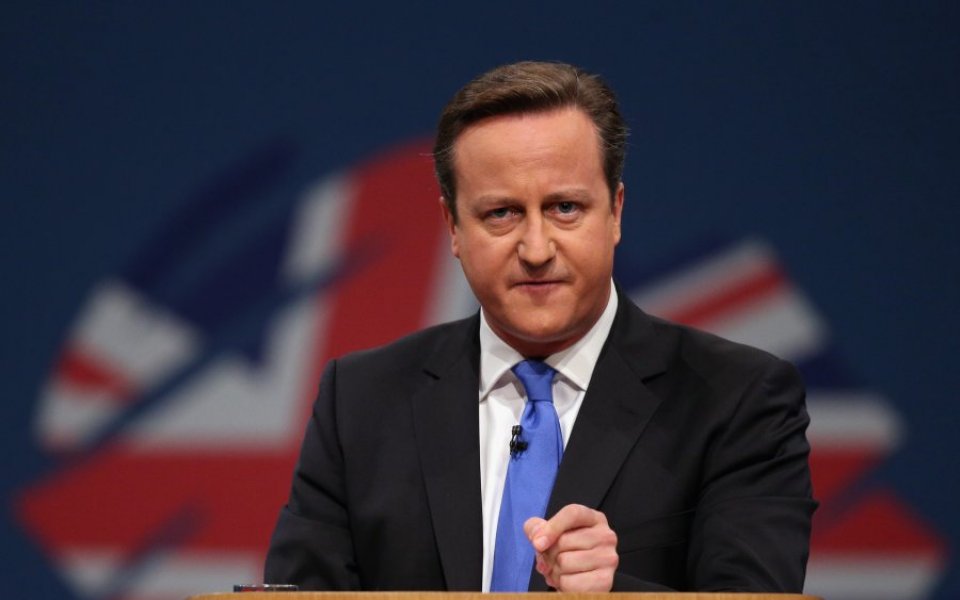Cameron’s EU deal is the biggest political fudge in history

Such has been the disbelief and disappointment surrounding the Prime Minister’s EU negotiation strategy that, prior to the publication of his draft EU deal yesterday, many kept saying to me: “he must be going to pull a rabbit out of the hat!”
Well, we’ve had European Council president Donald Tusk’s draft agreement and there’s no rabbit. There’s not even a hat. The draft deal is so poor that commentators are running out of euphemisms to describe it. What is plain is that the Prime Minister’s deal is no deal. It is the biggest political fudge of modern times.
This is not hyperbole. We just need to spin back to the speeches made by the Prime Minister at his party conferences or to his Bloomberg address in January 2013 (when he first announced that he would allow an EU referendum) to see how much he has retreated from his original ambitions for reform. In 2007, for example, David Cameron said he wanted control over employment law to be handed back to Britain. He has called for opt-outs and exemptions from EU directives, and big cuts to EU waste. There is nothing in yesterday’s draft agreement to reassure us that anything like this is going to happen.
And what is in the deal is simply not up to the challenge. Denying in-work benefits to migrants, for example, which Cameron does seem confident about achieving, was never an issue in the past. The issue has always been public disquiet about the quantity and the quality of migration, due to Britain’s inability to control the unlimited access of EU citizens. Given the government’s target of reducing net migration to the tens of thousands, this has led us to the perverse restrictions that many firms in the City and the rest of the UK face in recruiting highly skilled workers from non-EU countries like India or Australia. Obtaining work visas for these people has become time consuming, complex and costly.
The migration issue is not about race, colour, or religion. It is about UK manufacturing and service industries obtaining the right people for the right jobs. It is about tackling the pressures on our housing, our schools and our hospitals from the large unplanned increase in population that has happened because anyone in the EU can come here to settle. It is not about benefits either.
Open Europe calculates that only 15 per cent of EU migrants would be impacted by restrictions on in-work benefits. That is why an economist at the Office for Budget Responsibility has said that changes to benefits will not make any noticeable difference to migration levels.
What does attract migrants is our relatively high minimum wage, offering hourly rates as bar staff that are attractive to East European engineers. So what does our government do? George Osborne increases the UK minimum wage to one of the highest in the EU, more than cancelling out any gain that temporary benefit restrictions might provide. In short, one of the centrepieces of the Prime Minister’s deal is a reform that no one asked for which will do nothing to tackle the problem the public is actually concerned about.
The Prime Minister also claims to have won a major concession in the form of a red card that will prevent any future EU legislation that might threaten British interests. Sounds positive. Unfortunately, this is just another fudge.
First, the new mechanism does not allow us to repeal existing legislation damaging to UK businesses that Britain has opposed over the years – only leaving the EU can do that. It is also less than helpful for preventing future EU rules. A yellow card system already exists and it has failed to make any difference to laws we did not want. This red card will be no better. What has to be remembered is that 19 of the EU’s 28 members are in the Eurozone – they have a common interest and will choose to vote as a group.
For the UK to obtain the necessary support to block unwanted laws, it will have to identify a common concern and horse-trade to get 15 other nations on side. That means we will have to make concessions in one area to simply prevent losing out in another. The red card represents no significant shift of power and sovereignty back to Britain.
Far better would be if we controlled our own destiny by repealing out-of-date laws and introducing new more relevant ones. It is clear now that only leaving the EU would give us back control and allow us to have laws that work in our interests and not those of 27 other countries.
To add insult to injury, the promise of ditching the journey to ever closer union “could” be considered for a future treaty change. That’s not a deal, that’s not even a promise. It’s a maybe.
By his own terms, the Prime Minister has failed. What is preventing a stampede by ministers and ambitious backbenchers to announce their own personal disappointment with what he has thus far achieved is their own ambitions to gain a government position in the future. Personal preferment is being put before what many said previously to be the right course. How shameful. Thank goodness the people and not the politicians will decide this referendum.